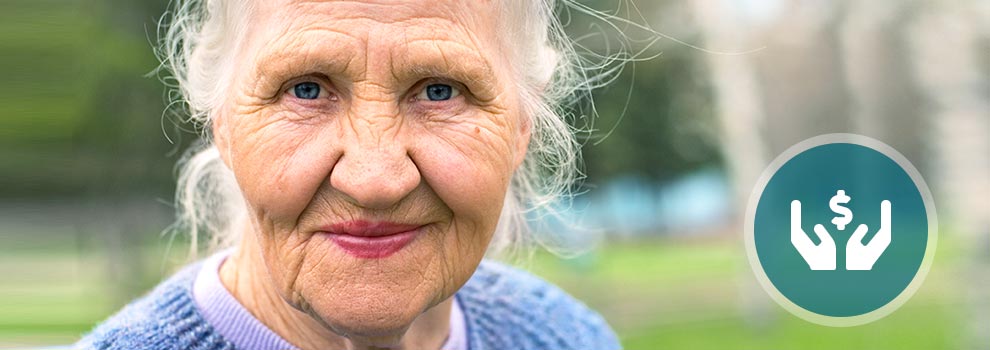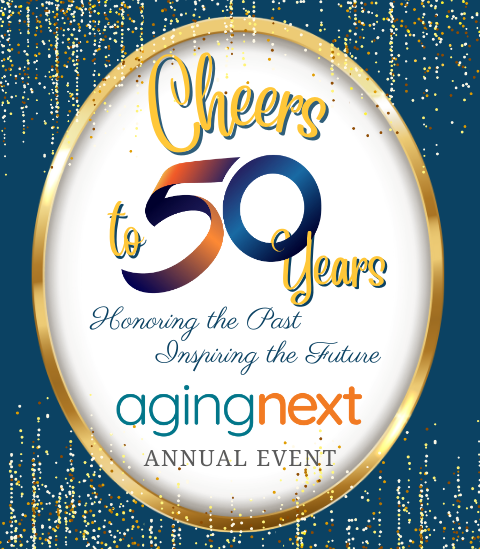
Make a Monthly Gift
Become a Give Well Partner
Monthly donations are critical in funding our mission to help seniors thrive at home and live independently with dignity. Help make a difference in your community today!
Monthly Donation Amount:

Monthly donations are critical in funding our mission to help seniors thrive at home and live independently with dignity. Help make a difference in your community today!
Monthly Donation Amount:


Aging well starts with eating right, staying active, and thinking positive. Learn how to take good care of your body and your mind with timely tips from our Thrive at Home Specialists.
Gale began attending the AgingNext Caregiver Support Group meetings over 17 years ago when her father was diagnosed with Leukemia. Shortly after his passing, her mother was diagnosed with vascular dementia, and Gale became her caregiver and a volunteer at AgingNext. When Gale was invited to attend an Alzheimer’s Association class to be certified as a support group facilitator – she found her passion – volunteering to help other family caregivers. She shadowed our case manager and learned from our other support groups until she was ready to start her own. To even better prepare for what lay ahead, Gale became a Certified Gerontologist.
Gale and one of her support group attendees, Kathleen McCall, saw the opportunity for a new Caregiver Support Group, one that included art to give attendees an additional form of expressing their grief, frustration, and love for the person they were now caring for. The group is co-sponsored by the Pomona Valley Art Association, The Art Place at Montclair Place, and AgingNext; it incorporates relaxing art therapy with traditional support group methods.
In the U.S., over 40 million family caregivers provide care for loved ones. It is easy for caregivers to neglect their own emotional and spiritual health. Caregiver burnout can happen when help isn’t available. Studies show that local support groups can be exceptionally helpful in preventing burnout. Gale volunteers so much of her time to ensure the group’s success. She looks for opportunities for improvement, incorporates new ideas, and consults with our aging experts to find the appropriate resources to help group members and their loved ones.
Gale relates personally to each attendee; “You are not alone” is the group motto. As a caregiver herself, Gale visits her own mother every day in a Board and Care, helping with her daily activities, and then volunteers her time to help other family caregivers going through the same thing- so that none of them are going through this alone.
Switching to Virtual Support Groups was a challenge for many people, but Gale’s group acclimated and continued to grow over the pandemic. The need for support was at its highest level ever. With adult daycare centers closed and home health agencies stretched to provide in-home care, the AgingNext support groups helped family caregivers – be a little less alone.
How do AgingNext Support Groups help?
Bill was a single man caring for his mother who exhibited symptoms of the advanced stages of dementia. He was perplexed and frustrated about how to deal with her behavior. He felt isolated and alone because this was a new experience for him. He was concerned that he would have to quit his job because caregiving consumed so much of his time, and he didn’t know how he would support himself financially. Before attending the support group, he was unaware that medical and neuropsychiatric evaluations were available to diagnose her condition. Through the AgingNext support group community, he learned about how others managed the behaviors of those they cared for and was able to form some strategies of his own. He was referred to the AgingNext Memory Care Center, and his mother enjoyed the program so much that she was disappointed on the weekends when she couldn’t attend. With the support, resources, and care provided by the support group members and by AgingNext, Bill received much-needed time for himself, and he was able to continue working at his job.
Group members can always rely on the group to listen, provide them with comfort and friendship, offer support in making tough decisions, and care for them as only other caregivers can. Care recipients benefit, too, as their providers can focus their energies on the task at hand.
Are you a family caregiver, or do you know someone who is? Tell them about our Caregiver Support Groups; we have one that will fit into everyone’s schedule and are free to attend.
Get Inspired! Subscribe to Our Newsletter Today.
Notifications